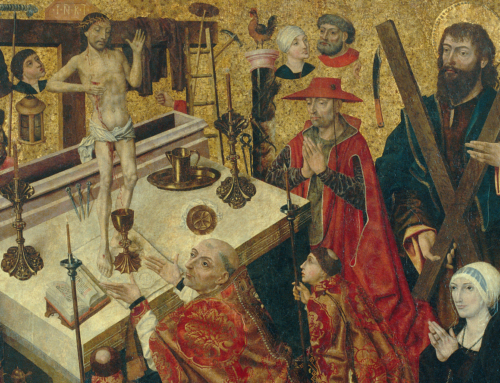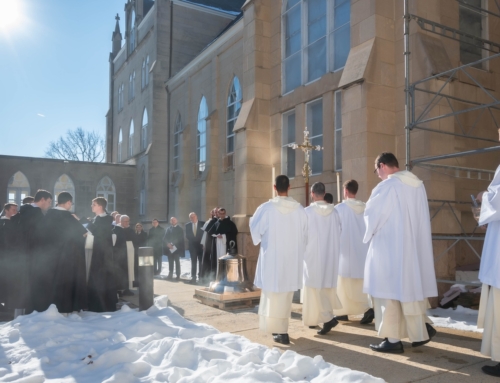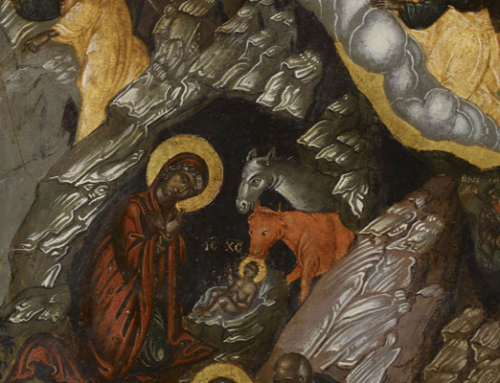After spending hours trying to create the assigned airplane landing gear mechanism, the engineering student believes that his Computer Aided-Design model is nearly complete, save for some finishing touches. He heads into class fairly confident—until his attempt to make one of the final connections between parts fails. Anxiety creeps into the student’s mind as he nervously raises his hand. The TA comes over, inspects the model with a few clicks, and says the words the student had been dreading since he began his efforts: “I think you should just start over.”
The anguish felt by this student is shared by anyone who, after working hard at a task, discovers that any further efforts to remedy the situation would be futile and that the only way to progress would be to abandon the attempt and start from scratch. Ask anyone—this is not a pleasant experience!
Thankfully, this is not how God acts when we fall. God takes us—with all of our faults, sins, wounds, and miseries—and transforms us, by his grace, into a new creation in Christ (2 Cor 5:17). God accomplishes this re-creation of us primarily through the sacraments. In Baptism we are born into a new divine life; in Holy Communion this new life is nourished and deepened in us; and in the sacrament of Confession this life is restored to us.
This is good news! The same “hands that made me and shaped me” (Ps 119:73) are also committed to saving me. When God sees the incompleteness of our lives, the shortcomings we are weary of, and the misery wrought from our sins, he does not give up on us. While it might be easier for humans to simply give up and start over when something is not working, this is not how God operates. God does not make mistakes.
Instead, God takes all of us, each a sort of faulty “computer model” due to our own sins, and patiently works to renew us. God “doubles down” and never tires of continually restoring us. The Book of Wisdom beautifully expresses this never-ending love of God for his creatures:
“But you have mercy on all, because you can do all things;
and you overlook sins for the sake of repentance.
For you love all things that are
and loathe nothing that you have made;
for you would not fashion what you hate” (Wis 11:23-24).
God loves all that he has created–including you and me. He loves us and will never give up or “start over” on us. He does not abandon us in our misery! Instead he transforms us into a new creation, as he is committed to making all things new in himself (Rev 21:5a).
With all of this in mind, we can only be filled with tremendous confidence in God’s radical love for each one of us. God’s personal love for us is believable because he is not distant or indifferent: “The dwelling of God is with men. He will dwell with them, and they shall be his people, and God himself will be with them” (Rev 21:3). This knowledge and trust in God’s unfailing love allows us to rush into the arms of our merciful Father and say with the prodigal son, “Father, I have sinned against heaven and before you; I am no longer worthy to be called your son!” And our Father, amidst the rejoicing heavenly courts, will respond, “Let us eat and make merry; for this my son was dead, and is alive again; he was lost, and is found” (Lk 15: 20-24).
✠
Image by John Schnobrich on Unsplash







